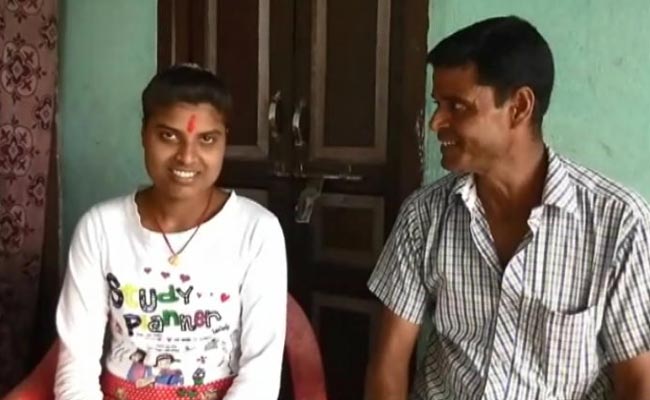The Mis-Education System

NEW DELHI: The Bihar School Examination Board (BSEB) is not new to controversy. Last year, a video showing people scaling walls and passing chits to students left the board red-faced. This year, the issue is of an uglier nature.
Another video has emerged, this time of the interview of two of the toppers from the Science and Arts streams. The video shows the arts topper, Rubi Ray, referring to the subject as “prodigal science.” Furthermore, when asked what the subject is about, she says “it is about cooking.” Not far behind, Sourav Sresth, the science topper who scored a whopping 485/500 believes that aluminum is the most reactive element in the periodic table. If you’re still trying to remember the correct answer, it is fluorine.
As the videos went viral on social media, the state board chairman Lalkeshwar Prasad Singh ordered a re-examination for the various toppers from all three streams. The students will also be subject to an interview by an expert panel and a handwriting check. The focus on merely the toppers for this reevaluation seems short-sighted as the systemic nature of this crisis is hardly a secret. This means that all other students will escape scrutiny merely for not being toppers.
Social media understandably had a field day with the hash tag “#Nitishketoppers” trending on twitter. People were quick to tear into Nitish Kumar’s government on the issue with one tweet even suggesting that the Election Commission should also conduct a re-election as the poll results were also “botched up.” The rapid politicization of this issue reflects how constructive discourse in India is so easily derailed.
The focus needs to be on the cross-cutting nature of this epidemic that is more pronounced in examinations conducted by the state boards, irrespective of the government in power. Yet, the bulk of the discussion on twitter continues to centre on either scape-goating the state government on the issue or insults targeting the state in general.
Vibhor Mathur, co-founder of Project Aawaaz, a not-for-profit trust working in the education sector in Delhi said, “I think there are two possibilities in this case. Firstly and more likely, proxy candidates could have been used here. This has been a recurring problem in the area. It just goes on to reflect the massive discrepancies that plague the conduction of examinations by the state boards in India. The second and far scarier possibility is that the students were actually unaware of the subjects they have topped in. They might have just mugged up the course while never bothering to understand the contents. Sadly, this is not an improbability in the context of how our education system functions. I think the state governments need to take certain basic steps like proper verification by the invigilators while looking into the larger issues, concurrently.”
The implications of the scandal are far-ranging. The absence of a nation-wide standardized education system means that the students emerging from national boards like CBSE and ICSE directly compete with students of the state boards during the admission process for universities like the University of Delhi that attract students from all over the country.
The possibility that the state board students unduly benefitted from a lax evaluation system makes the situation vastly unfair for the other students. This is increasingly relevant in the present scenario where the difference of even one percentage point means missing out on the college of one’s choice.
Rukma Singh who was a national topper in political science in 2014 had this to say, “It is very difficult to imagine how the state boards can be so lethargic in the conduction of examinations. It is quite improbable for me to think of something like this happening in CBSE schools. At the end of the day, the students from other boards like CBSE have to bear the brunt of this mismanagement. The students entering colleges without knowing the subject’s basic suffer massively while also bringing down the overall quality of the education system. I think the government should look into having a single board conduct examinations nationwide. This would make evaluation and verification much easier.”
The apathy of the political parties over such issues is appalling. It is fair to imagine that no proceedings would have been undertaken had the interview videos not emerged. Even then, the debate boils down to the inefficiencies of the state government while failing to address the more concrete issues at hand. A more comprehensive and concerted effort addressing the questions of standardization, adequate verification and proper evaluation need to be focused upon here. It now remains to be seen how the toppers fair in the “retest” and whether other state governments take inspiration to ensure that no discrepancies emerge in their respective examination processes.



